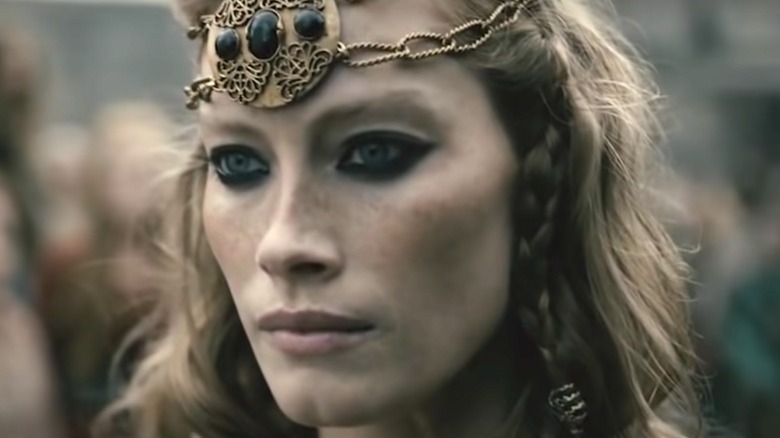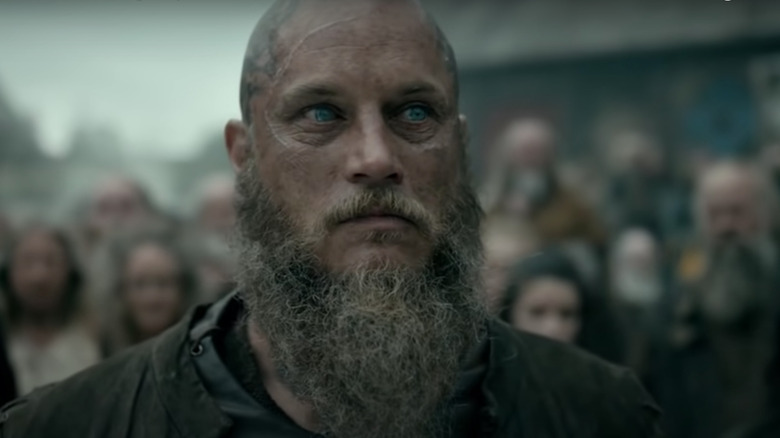One Historical Detail That Vikings Gets Completely Wrong
When "Vikings" premiered on History in 2013, the drama found a devoted audience. Chalk it up to a post-"Game of Thrones" interest in all things medieval or the show's combination of mythological narratives and tactile gore, either way, the positive response from audiences and critics was strong. Loosely based on legendary hero Ragnar Lothbrok (Travis Fimmel), the series follows Ragnar's rise from humble farmer to feared king, as well as his circle of crew members and descendants. Even after Ragnar's death in Season 4, "Vikings" continued on without a hitch, introducing new characters and new conflicts to keep fans tuning in.
Over the course of its six seasons, the minds behind "Vikings" put in ample research to put certain historical accuracies at the forefront. Ragnar, Rollo (Clive Standen), and Floki (Gustaf Skarsgård) are all based on chieftains, settlers, or legendary figures, and certain social aspects surrounding diversity and gender roles are also based in fact, not to mention references to real-life raids. That said, despite being a linchpin of History, "Vikings" also has its fair share of historical anachronisms. Here's one historical detail that's perhaps the most brazenly inaccurate.
Vikings didn't actually call themselves Vikings
"Vikings" is a historical drama, the operative word being drama. When dealing with matters of historical import, the show's writers take their fair share of creative license, whether it's in the modernized costume and set design or manufactured historical events. Other anachronisms boil down to semantics, the most obvious of which is that the Vikings didn't call themselves Vikings at all.
According to The Conversation, Viking comes from the Old Norse word "víking," which is an activity rather than an individual or ethnic designation. "Vikingr," meanwhile, was one who embarked on such activities, be it any form of adventuring, typically by sea. The etymological breakdown provides even more historical context. The Old Norse "vík," History Today reports, translates roughly to creek, inlet, or bay, suggesting where such a population might reside. The Old English "wīc," meanwhile, means camp, perhaps a nod to the groups' roving settlements.
In any case, between the 8th and 11th centuries, populations living in Scandinavia were more commonly referred to as the Norse or Norsemen. According to an essay by historian Alex Woolf, the use of the term Viking to broadly reference medieval Scandinavians likely didn't take root until the 19th century and represents an inaccurate conflation of Norse warriors and seafarers and your average everyday citizen of the territories they originated from.
That doesn't stop the characters in "Vikings" from referring to themselves as such, as when Erlendur (Edvin Endre) says, "A Viking never gives up on his revenge." But at the end of the day, as far as television branding is concerned, "Vikings" is a much better sell than "Norsemen."

